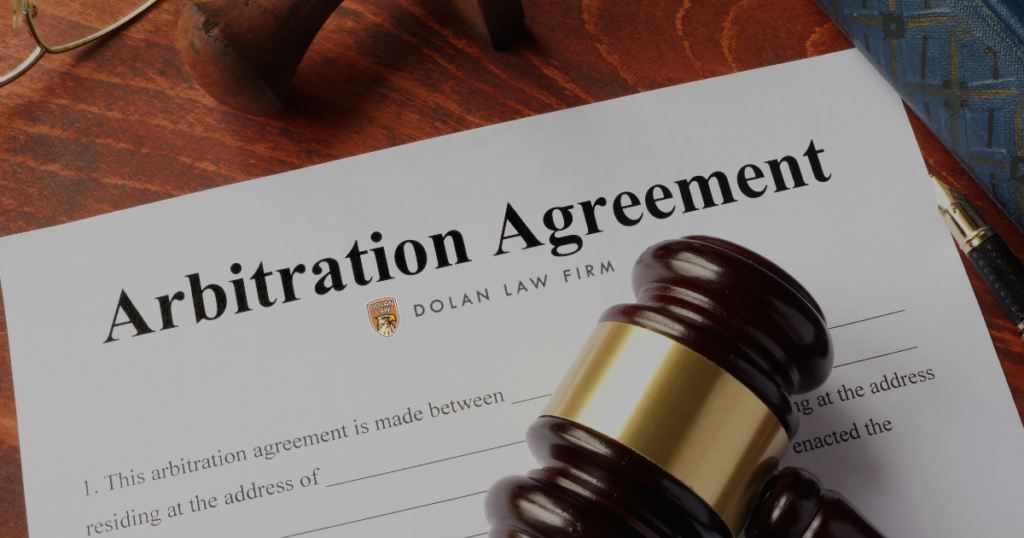Written By Christopher B. Dolan and Taylor French
This week’s question comes from Anonymous who asks: I had a doctor’s appointment the other day, and there was an arbitration agreement in the intake paperwork packet. What is arbitration, and am I required to sign this agreement?
Dear Anonymous, thank you for your question. Arbitration is an out-of-court method of dispute resolution wherein a neutral decision-maker makes rulings of law and fact and ultimately decides the outcome of a particular case. In other words, arbitration is essentially a paid private trial. In recent years, it has become more common to see clauses in service contracts requiring that the parties participate in arbitration if a dispute arises because businesses view arbitration as a means to avoid costly and lengthy litigation. Arbitration is binding, meaning the decision made by the arbitrator cannot be appealed, with very few exceptions, which limits the time the dispute can continue. Arbitration keeps the details of the dispute out of the public record, which appeals to businesses who want to maintain a particular reputation within the community.
While arbitration is not inherently bad as a means of alternative dispute resolution, issues arise when attending arbitration is mandatory instead of voluntarily and mutually agreed upon by the parties. for several reasons, agreements in service contracts requiring that the parties attend arbitration are controversial. First and foremost, they strip individuals of an important constitutional right – the right to a trial by jury. Once signed, the consumer can no longer opt for a jury trial despite its likelihood of being more advantageous or impartial.
Signing an arbitration agreement may put the consumer at risk of having a disadvantage during arbitration because a supposedly impartial arbitrator chosen or proposed by the business may have a prior existing relationship with the company. Imagine a scenario in which an arbitrator has decided against a particular company in favor of the consumer. That company, which is likely to be engaged more often in disputes requiring a hired arbitrator, will likely not propose or consent to using that arbitrator in the future. If the arbitrator has ruled in favor of the company, the company will probably return with future business. This dynamic has the potential to influence the arbitrator’s decisions. Unfortunately, consumers often do not realize they are facing these risks when signing a contract containing an arbitration clause until a dispute arises, and it is too late.
The situation you describe in which a patient shows up to a doctor’s appointment and they immediately hand them a pile of paperwork to review, fill out, and sign is particularly problematic. As the patient frantically attempts to fill out all the forms with their medical history, contact information, and insurance information, they may quickly sign an arbitration agreement slipped into the pile of paperwork. They may not have a moment to consider and understand its implications properly. An arbitration clause could be as short as a single sentence, which could cause the patient to look over it in its entirety when skimming through various contracts. However, despite the pressured conditions under which parties sign arbitration agreements, they are often deemed enforceable, and patients are compelled to attend an arbitration..
Given the potential disadvantages that a consumer may face in an arbitration, it is always important to take a moment to thoroughly review and consider any agreement that includes an arbitration clause. If the above-described conditions are not those you are willing to face during an arbitration, perhaps consider taking your business elsewhere.










